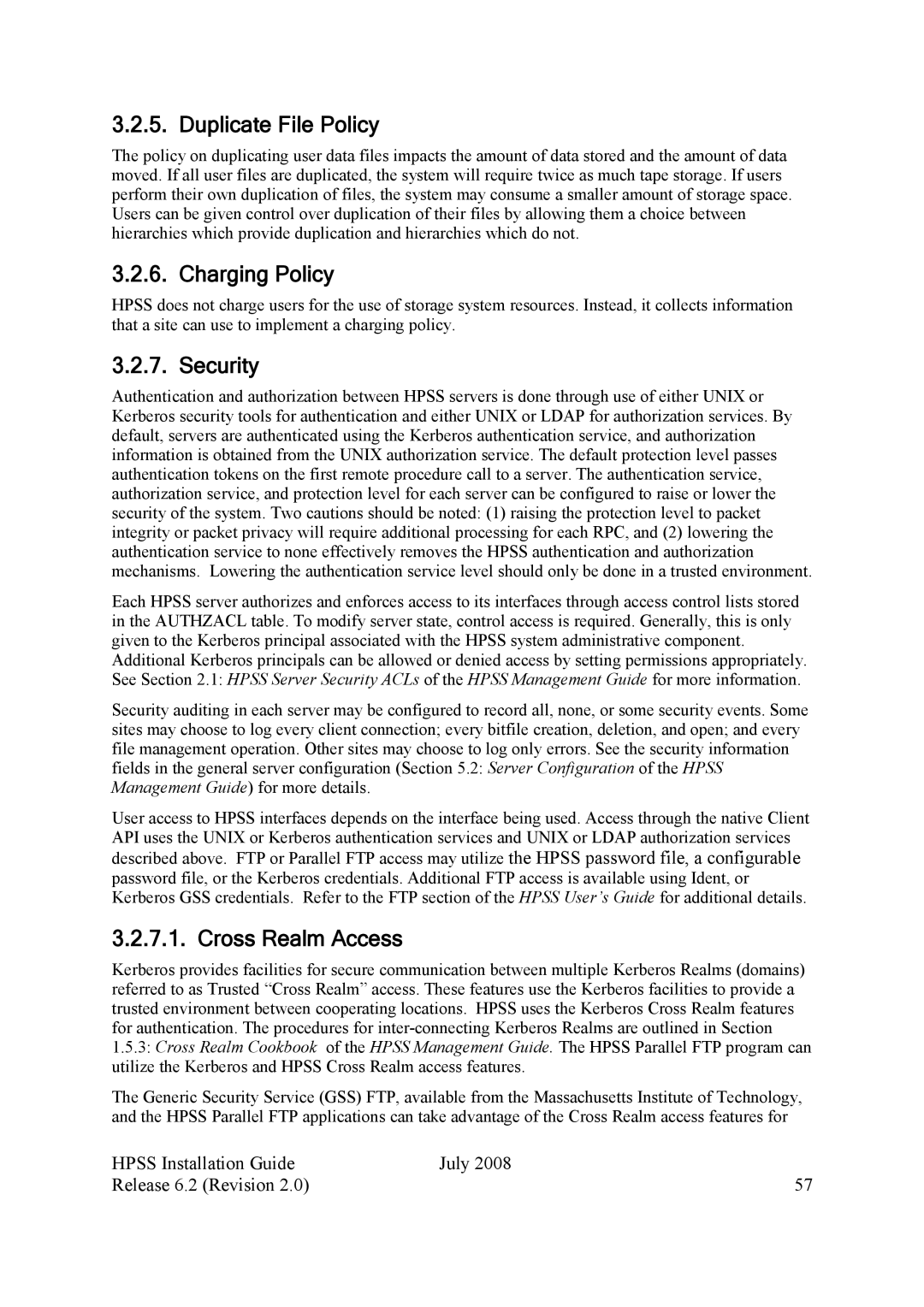3.2.5. Duplicate File Policy
The policy on duplicating user data files impacts the amount of data stored and the amount of data moved. If all user files are duplicated, the system will require twice as much tape storage. If users perform their own duplication of files, the system may consume a smaller amount of storage space. Users can be given control over duplication of their files by allowing them a choice between hierarchies which provide duplication and hierarchies which do not.
3.2.6. Charging Policy
HPSS does not charge users for the use of storage system resources. Instead, it collects information that a site can use to implement a charging policy.
3.2.7. Security
Authentication and authorization between HPSS servers is done through use of either UNIX or Kerberos security tools for authentication and either UNIX or LDAP for authorization services. By default, servers are authenticated using the Kerberos authentication service, and authorization information is obtained from the UNIX authorization service. The default protection level passes authentication tokens on the first remote procedure call to a server. The authentication service, authorization service, and protection level for each server can be configured to raise or lower the security of the system. Two cautions should be noted: (1) raising the protection level to packet integrity or packet privacy will require additional processing for each RPC, and (2) lowering the authentication service to none effectively removes the HPSS authentication and authorization mechanisms. Lowering the authentication service level should only be done in a trusted environment.
Each HPSS server authorizes and enforces access to its interfaces through access control lists stored in the AUTHZACL table. To modify server state, control access is required. Generally, this is only given to the Kerberos principal associated with the HPSS system administrative component.
Additional Kerberos principals can be allowed or denied access by setting permissions appropriately. See Section 2.1: HPSS Server Security ACLs of the HPSS Management Guide for more information.
Security auditing in each server may be configured to record all, none, or some security events. Some sites may choose to log every client connection; every bitfile creation, deletion, and open; and every file management operation. Other sites may choose to log only errors. See the security information fields in the general server configuration (Section 5.2: Server Configuration of the HPSS Management Guide) for more details.
User access to HPSS interfaces depends on the interface being used. Access through the native Client API uses the UNIX or Kerberos authentication services and UNIX or LDAP authorization services described above. FTP or Parallel FTP access may utilize the HPSS password file, a configurable password file, or the Kerberos credentials. Additional FTP access is available using Ident, or Kerberos GSS credentials. Refer to the FTP section of the HPSS User’s Guide for additional details.
3.2.7.1. Cross Realm Access
Kerberos provides facilities for secure communication between multiple Kerberos Realms (domains) referred to as Trusted “Cross Realm” access. These features use the Kerberos facilities to provide a trusted environment between cooperating locations. HPSS uses the Kerberos Cross Realm features for authentication. The procedures for
The Generic Security Service (GSS) FTP, available from the Massachusetts Institute of Technology, and the HPSS Parallel FTP applications can take advantage of the Cross Realm access features for
HPSS Installation Guide | July 2008 |
Release 6.2 (Revision 2.0) | 57 |
